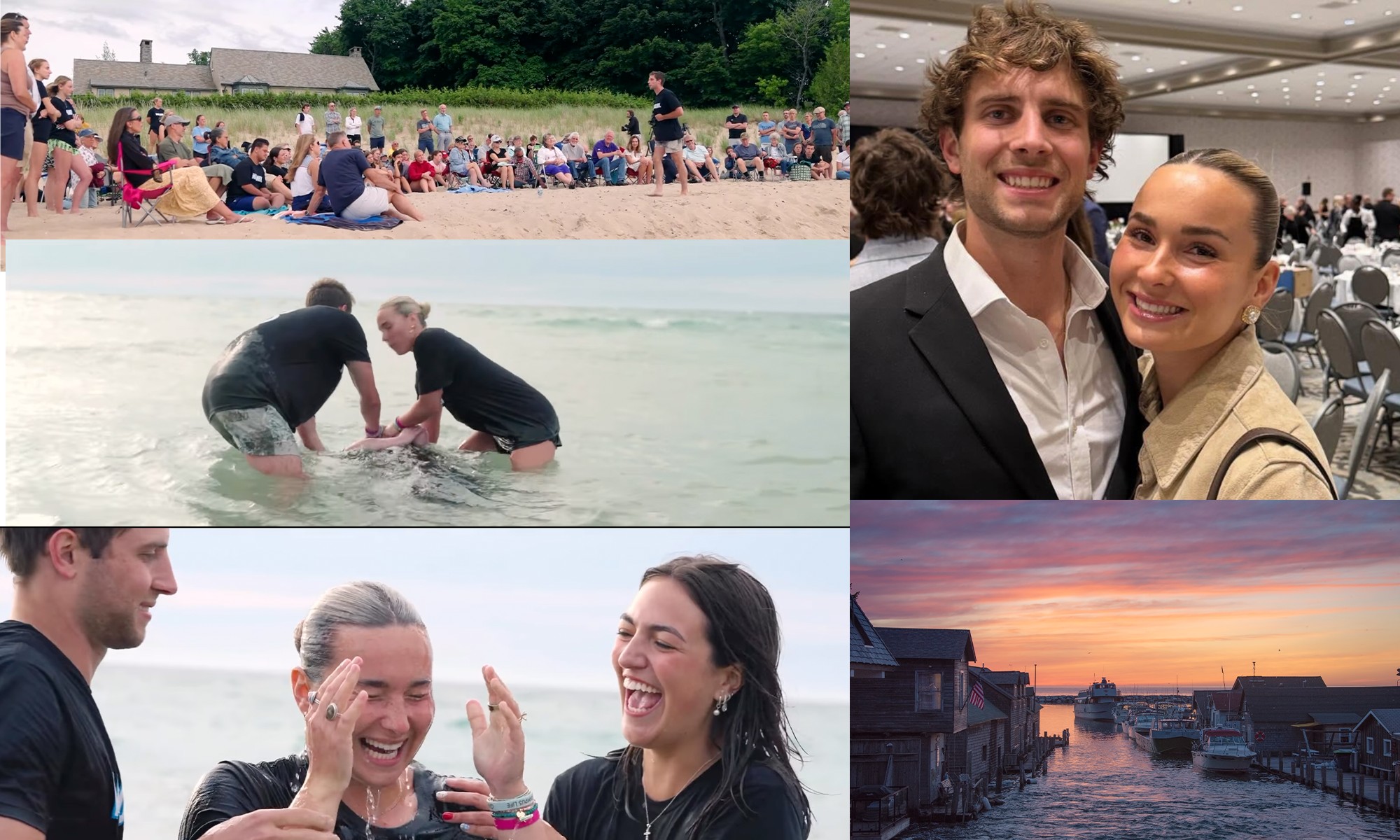Copying and Reexploring the Constitution, Word for Word
Photo: Anne-Marie Oomen (l) and Traverse City Mayor Amy Shamroe (r) at a Constitution copying event at the Traverse Area District Library on Oct. 4.
From staff reports
On Saturday, Nov. 22, at 10 am, the Glen Lake Community Library in Empire invites the public to explore the U.S. Constitution, the foundational document of our democracy. In partnership with Michigan Writers, author and Empire Township resident Anne-Marie Oomen will lead this hands-on workshop, with participants copying the entire Constitution, section by section, then reading aloud and discussing their compiled work. This exercise will help refresh and refine our understanding of this core framework of democracy. Contact the library to register in advance.
The Sun interviewed Oomen about her inspiration for initiating this event.
Glen Arbor Sun: What inspired you to hold this event at the Glen Lake Library?
Anne-Marie Oomen: In April I read a brief article in The New Yorker about an artist who had hand copied the Constitution of the United States seven times. Remarkable. Her experience was meditative, an exercise in truly understanding our most important rights documents. I was thinking about what a rare effort that was, and how hard it might be to stay with it. I wondered if it would be easier to do in community. I wondered if the copying were a shared thing, would it be a unifying experience? So I talked with other members of the Michigan Writers Board, and they were like–this is a no brainer, let’s figure it out. That spearheaded the first time we did that at Traverse Area District Library back in October. Now we’re doing this on Saturday, November 22, at 10 am.
Sun: What do we learn by copying the Constitution, section by section, and reading it aloud? How does the experience change our relationship with the document?
Oomen: Copying out a text is a common practice among writers. Text copying (not for cheating!) is really valuable when you are developing your consciousness of meaning, voice, and style. If you get inside the language, you take the meaning inside you in a way you don’t if you just read it silently. And if you both copy a passage, and then read it aloud to hear it, your brain (and maybe your heart) process that language differently than scanning. You’re also more likely to remember the wording–the more senses involved, the more likely you are to remember it. So when we gather together to copy the Constitution, we’re also sharing a civic experience–citizens joined in this quiet meditation, raising our consciousness. We’re communally taking in and breathing out this most important rights document. It works relationally in other ways as well. Copying this rights document, which is actually only about 7600 words, puts us in touch with those founders, how they were thinking in a difficult and dangerous time. What becomes clear to me as I study it? You don’t create a structure like this, and use language like this, unless you are truly afraid of tyranny. It’s not just about what they wanted the country to be; it’s about what they didn’t want it to be. Another aspect is that there is currently a lot of misinformation floating around about the Constitution–this helps correct that. And so, for some, it’s an act of quiet resistance.
Sun: Will you initiate, or take part in, any more “Copying the Constitution” events?
Oomen: Because I was one of the Michigan Writers board members (along with Dan Stewart and Teresa Scollon) who helped initiate the first local Copy the Constitution Project at Traverse Area District Library, I’ll be assisting people (along with several volunteers from the community) in organizing the process. We try to make the process efficient so that people can focus on the passage they are copying. The protocol is not difficult but needs a little structure–so that’s what Michigan Writers invented–a system for doing this so that people could concentrate on the document. Then we post all the copied passages in order, each in our unique hand-written scrawl. It’s so simple and beautiful to see it all written out and posted. Yes, I’ll try to copy a passage, usually one that no one is interested in, which means I get to explore some of the “weeds” where the Constitution language gets dense. After the Preamble, my favorite part is the signatures–suddenly all those people come live when you see their names.
Sun: How are you thinking about the nation’s upcoming Biesquicentennial in 2026? (Am I using the correct word?) What events or observances do you envision (or hope for) in our communities?











